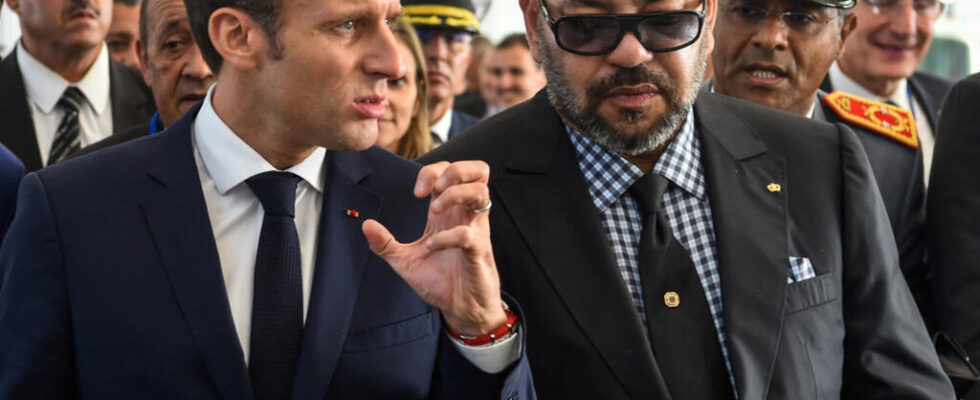Will the diplomatic rapprochement between Paris and Rabat and the estrangement that is once again emerging between Paris and Algiers have economic consequences? RFI asked experts.
3 min
On July 30, the day of the Throne Day in Morocco, French President Emmanuel Macron, in a letter to Mohammed VI, expressed his support for the Moroccan plan on Western Sahara. On August 1, the French company Egis Rail won the contract for project management assistance for the Kenitra-Marrakech high-speed rail line, ahead of its Spanish competitor Ineco.
“Reinvention of an economic partnership with Morocco”
Without seeing an immediate cause-and-effect link, the diplomatic rapprochement between Paris and Rabat implies a strengthening of economic ties, which have been underway for several months. Last April, the French Minister of Commerce visited the Cherifian kingdom, with a whole bunch of companies and public financial institutions. France, already very present in the automobile industry as well as in real estate and services, wishes to increase its investments in Morocco in water, sustainable energy and transport, even in the Saharan provinces.
According to Abdelmalek Alaoui, president of the Moroccan Institute of Strategic Intelligence, the political gesture from Paris will further catalyze Franco-Moroccan relations on the economic level: ” It is the reinvention of an economic partnership in which Morocco has many projects, whether in infrastructure, in renewables or in technology which is not limited to Morocco, but extends to the entire West African space on which Morocco shines.”, before adding: ” We cannot return to energy dependence with Algeria overnight. »
Read alsoIn the news: Western Sahara, France aligns itself with Morocco’s position
For its part, Algiers immediately recalled its ambassador to Paris, but this does not mean that Franco-Algerian economic and commercial relations will collapse. Certainly, French investments are three to four times lower than in Morocco, Algeria having more restrictive legislation, but commercial exchanges – 11 billion euros – are comparable to Franco-Moroccan exchanges.
France exports agri-food products to Algeria and, increasingly, industrial products. In the other direction, Algeria exports more and more gas to France, since it has stopped using Russian gas.
There may be more administrative hassle for French companies or products, acknowledges Dhafer Saidane, professor at Skema Business School, but not to the point of upsetting the fundamentals, as Algerian gas still weighs heavily in bilateral trade. We cannot sweep aside with a wave of the hand everything that has been built and all this real economy that is tied in terms of services, trade, industry. We cannot go back to energy dependence. What would be the alternative? The structure of the trade balance cannot be called into question overnight.. »
Read alsoRelations between Algeria and France: “the status quo was no longer tenable”
“Algeria must ensure the economic stability of contracts”
As for the eviction of French companies from Algeria, particularly in hydrocarbons, the oil geopolitician Philippe Sébille-Lopez does not believe it: ” The Algerian government must still ensure the stability of investments, it is for the economic stability of contracts. In this area, political reasons do not count. »
Algeria would be exposed to heavy fines and a damaged image among investors, while it expects them to develop new gas fields.
Read alsoFrance-Morocco relations: in Rabat, ministers seal the resumption of contacts
